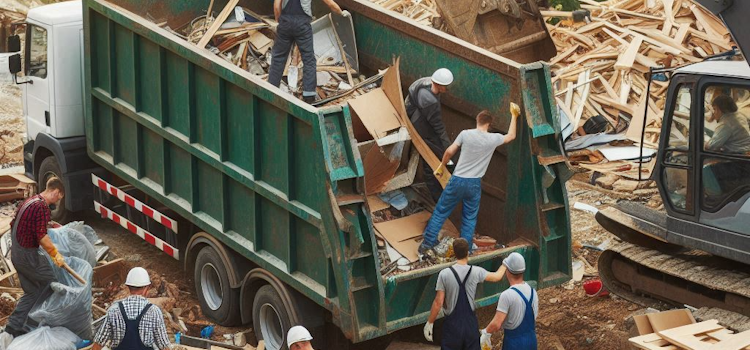In our consumption-driven society continuing to generate and produce high levels of waste, junk disposal remains a significant aspect of managing our outputs.
How junk disposal is eco-friendly is highly dependent on how the entire process of acquiring and disposing of waste is managed. So let’s analyze different aspects of junk disposal and evaluates how current practice is or aims to align with objectives of sustainable environments, exploring possible areas of improvement.
Junk disposal is the removal of unwanted items, from around the house clutter to industrial waste. Naturally, the main objective is to clear a particular area while getting rid of waste that has built up over the years.
The manner in which such cleanups are conducted may greatly differ based on the environmental impact, knowing that waste removal commonly use landfills. While these sites are engineered to minimize a devastating effect on the environment, they still have multiple negative consequences.
Some of the key considerations that need to be made regarding landfills include:
- methane emissions: When waste undergoes anaerobic decomposition in landfills the produced methane, a highly potent greenhouse gas contributing to global warming
- leachate: This refers to liquid waste produced by decomposing waste that spreads throughout the environment infecting water sources and flows
- Space: The increased dumping of waste takes up large pieces of land waste disposal
- Burning: The burning of waste leads to the release of toxic gases as pollutants
- Ejection: Throwing away con substances in the wrong places
The level to which junk removal may be regarded as eco-friendly ultimately depends on applying practices that ensure a sustainable environment. These include:
Recycling
One essential aspect of green junk disposal is recycling. Diverting recyclable materials—greywater, plastics, glass, metals from general waste will decrease the demand for virgin materials and reduce energy usage. Recycling also reduces the amount of waste landfilled.
Reusing and Donating
What’s junk to one person is treasure to another. When repurposed creatively, general family items such as furniture, cloths, and electronic devices can be donated, sold through second-hand markets, or at least keep in some useful capacity. When products live longer, it leads to less waste and resource conservation.
Composting Organic Waste
Use composting instead of throwing away organic materials such as food scraps and yard waste. In which organic waste is turned into fertile soil amendments, eliminating methane emissions and adding to agriculture.
Ethical Handling of E-Waste
Electronic waste (a.k.a e-waste) is a special type of waste that contains toxic components, such as lead, mercury, and cadmium. These certified e-waste recycling facilities can separate reusable materials intact and dispose of hazardous components without damaging the environment.
Understanding Junk Disposal Services
Depending on the practices they use, professional junk disposal services can help to minimize environmental damage or further it.
Sustainable Companies
Eco-friendly junk removal companies focus on recycling, donating, and segregating junk in the most sustainable manner. They often work in conjunction with charities, recycling centers, and composting facilities to keep the least amount of waste as possible from ending up in a landfill.
Green Certifications
Seek out service providers with green certifications or a definite commitment to sustainability. Not only do these businesses show how they manage waste, but they also look for ways to minimize their impact.
Eco-Friendly Junk Disposal: All You Need to Know
One of the sustainable practices was there, but there are some barriers to eco-friendly junk disposal and its widespread acceptance:
Lack of Awareness
Unsure of recycling or environmental impact of garbage. Finding ways to encourage better habits is part of this education and outreach.
Costs
Processing materials using eco-friendly disposal methods — advanced recycling or hazardous waste processing — can cost more than other methods. Incentives and subsidies might alleviate this disparity.
Infrastructure Limitations
In certain areas, recycling, composting, and safe hazardous waste facilities are scarce, contributing to the inaccessibility of sustainable practices.
What Individuals Can Do
Needless to say, systemic change is critical, but individual people can do a lot to help promote eco-friendly junk disposal:
- Minimize waste in the first place: Choose long-lasting, fixable products and avoid disposable ones
- Recycle responsibly: Check local guidelines and do not contaminate recyclables
- Donate and repurpose: Before throwing something away, search ways to donate or creatively reuse it
- Choose green services: Go for junk removal companies that strive for sustainability
Of course, sustainable junk disposal is possible, too. By recycling, reusing, composting, and disposing of hazardous waste responsibly, we can reduce environmental impact. That is only if we all — people, businesses and governments — start using and advocating for green disposal practices. With the right mindset and logistics, trash disposal can become a liability of the past and provide a stepping stone toward a greener tomorrow.


